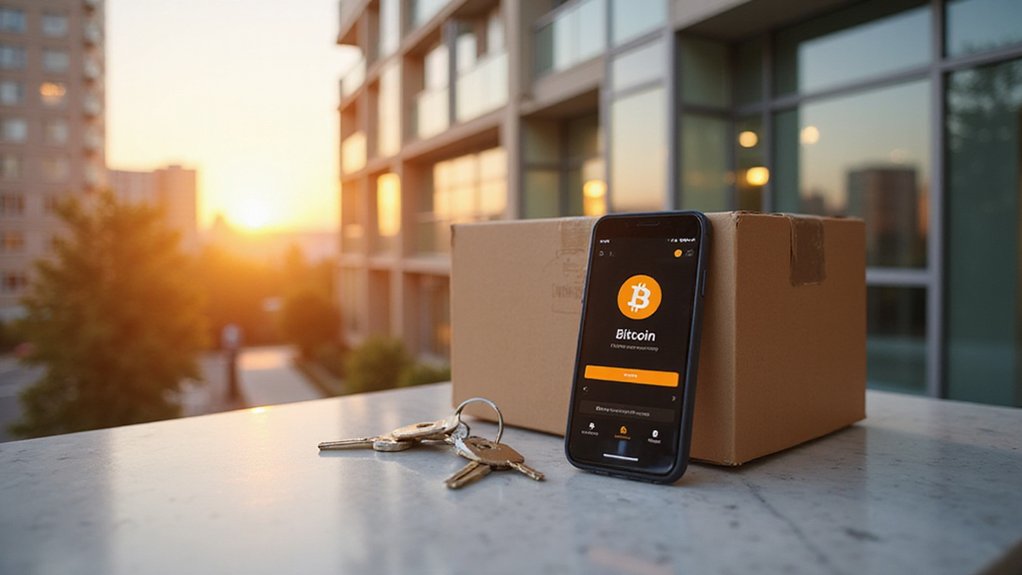A growing number of homebuyers are discovering that their digital wallets can access more than just online purchases—they’re opening the doors to actual homes. By early 2025, approximately 3-10% of home listings across Europe and the United States accept cryptocurrency payments, with American markets leading at 7-10% adoption rates. This digital revolution has found particular resonance in Miami, where crypto-backed mortgages now exceed $65 million in facilitated loans.
The transformation extends beyond mere payment acceptance. Direct wallet-to-wallet transactions eliminate traditional banking intermediaries entirely, as demonstrated by a Miami studio unit that sold for $528,900 through pure Bitcoin transfer. Such transactions appeal to global investors seeking efficiency in cross-border capital deployment, particularly within short-term rental markets where speed matters more than sentimentality.
High-value properties dominate this emerging landscape, with most crypto-accepting listings exceeding €1 million in Europe. Individual brokers report substantial activity—15 crypto-paid home sales averaging €500,000 each in Spain during October 2024, alongside a notable €1.2 million Cyprus transaction completed entirely through cryptocurrency in January 2025. Bitcoin’s surge to $109,100 in early 2025 has amplified purchasing power, enabling larger transaction sizes within this premium segment.
Bitcoin’s meteoric rise to $109,100 has transformed digital currency holders into major players in Europe’s luxury real estate market.
The underlying infrastructure continues evolving beyond simple payment processing. Blockchain technology now enables immutable property title recording, with South Florida pilot programs testing decentralized ledger systems to reduce closing times and fraud risks. These tamper-proof records provide transparent ownership verification accessible to all stakeholders, fundamentally altering traditional real estate documentation. Crypto transactions typically incur ~1% fees, dramatically lower than traditional bank fees of 2-5% for international purchases.
Perhaps most intriguingly, tokenization platforms are democratizing access to premium properties through fractional ownership structures. Investors can purchase blockchain-based tokens representing property shares, transforming traditionally illiquid real estate into tradeable assets. This innovation particularly flourishes in crypto-forward cities like Miami, where global investment flows encounter fewer regulatory obstacles. The growing focus on Real-World Asset tokenization by blockchain networks demonstrates how traditional property investments are becoming increasingly digitized. Stablecoins have emerged as the preferred payment method for many transactions due to their price stability compared to volatile cryptocurrencies.
The broader cryptocurrency market’s $3.5 trillion capitalization by January 2025 underscores the substantial capital available for real estate deployment. While crypto-for-property offers have tripled across Europe since 2021, the phenomenon remains concentrated among early adopters and luxury segments—though expanding adoption suggests this “radical rent revolution” may soon reach mainstream markets.








